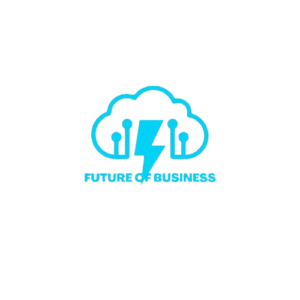The Rise of Remote Sales Closers in the Digital Age
The sales landscape has experienced a dramatic transformation in recent years, and one of the most notable shifts is the rise of remote sales closers. With digital platforms dominating business communication, companies now recognize that closing deals no longer requires in-person meetings. Instead, professionals skilled in remote selling are taking center stage. Remote sales closers specialize in sealing the deal after initial prospecting or lead nurturing has been completed. Their expertise lies in converting qualified leads into paying customers, often handling complex negotiations without ever meeting clients face-to-face. As businesses adapt to global markets and virtual work environments, the demand for these professionals continues to soar. This rise reflects how technology and consumer behavior are reshaping the very essence of sales.
What Remote Sales Closers Actually Do
Remote sales closers are distinct from traditional sales representatives because their focus is primarily on the final step of the sales process: closing the deal. While many sales reps handle the entire funnel, from lead generation to follow-up, closers step in once prospects are already interested. They guide potential clients through the decision-making process, addressing hesitations, negotiating terms, and ensuring that the sale is finalized. Their responsibilities often involve presenting product benefits, customizing offers, and ensuring the client feels confident in their purchase. Unlike appointment setters or cold callers, remote sales closers work with warm leads who are already primed for conversion. This role requires precision, confidence, and the ability to build trust quickly. In many industries, having a skilled closer can make the difference between an average sales team and a record-breaking one.
Why Businesses Rely on Remote Sales Closers
Companies across industries are relying on remote sales closers because of the efficiency and impact they bring to sales pipelines. These professionals help organizations achieve higher conversion rates by dedicating their energy exclusively to finalizing deals. For startups and small businesses, remote sales closers eliminate the need to build large, in-house sales teams, which can be costly and time-consuming. Larger enterprises also benefit because closers can adapt quickly to scaling demands without geographical limitations. Another reason businesses depend on them is their ability to tap into global markets, allowing companies to expand reach far beyond local boundaries. With remote closers, a business based in New York can easily close deals with clients in London or Sydney. This level of scalability and cost-effectiveness makes remote sales closers a powerful asset for growth.
Core Skills Every Remote Sales Closer Needs
Not everyone is equipped to succeed as a remote sales closer. The role demands a unique combination of soft and technical skills. Persuasion is at the heart of closing, as professionals must be able to handle objections while keeping the conversation positive. Emotional intelligence is equally essential since understanding a client’s emotions and motivations often determines the outcome of a negotiation. Strong communication abilities, both verbal and written, are critical because closers rely heavily on video calls, emails, and messaging platforms. Additionally, proficiency in customer relationship management (CRM) tools ensures that every interaction is tracked and optimized for success. Time management skills are also vital, as remote closers frequently juggle multiple clients across different time zones. The ability to remain disciplined and self-motivated is what separates high performers from average ones.
The Advantages of Pursuing a Career as a Remote Sales Closer
Choosing a career as a remote sales closer comes with several attractive benefits. Flexibility is one of the biggest draws, as closers can work from virtually anywhere, whether at home, in a co-working space, or while traveling. The earning potential is another reason many professionals are shifting into this field. Since compensation is often commission-based, income can scale significantly with performance. Beyond financial rewards, the career offers opportunities for personal development, as daily client interactions sharpen communication and negotiation skills. For those who enjoy high-stakes environments, the role can be both exciting and fulfilling. The ability to work with international clients adds cultural exposure and broadens one’s professional network. Overall, this career path appeals to individuals seeking both independence and financial growth in a remote-first world.
Common Challenges Faced by Remote Sales Closers
While the profession is rewarding, remote sales closers do face unique challenges. Building trust without meeting face-to-face can be difficult, especially when clients prefer personal interaction. Managing different time zones is another hurdle, as it often requires flexibility in scheduling calls at unusual hours. Rejection is part of any sales role, but handling it in a remote setting without immediate team support can feel isolating. Staying motivated while working from home requires discipline and self-driven energy. Additionally, technology issues such as poor internet connectivity or software glitches can disrupt the flow of closing calls. Another challenge lies in balancing personalization with efficiency, as clients expect customized solutions while closers must manage multiple leads. Successful professionals learn to overcome these obstacles through resilience, adaptability, and continuous skill development.
Tools and Platforms That Empower Remote Sales Closers
Technology is at the core of a remote sales closer’s success. CRM systems such as Salesforce, HubSpot, and Zoho are essential for managing client interactions and tracking progress. Communication platforms like Zoom, Google Meet, and Slack facilitate seamless collaboration with clients and internal teams. Sales enablement tools, including proposal software and presentation platforms, help closers deliver polished and persuasive pitches. Analytics dashboards provide insight into performance metrics, allowing closers to refine their strategies. Screen-sharing and digital whiteboard tools enhance client presentations, making them more interactive and engaging. Mobile applications further extend accessibility, enabling closers to work on the go. By leveraging these tools, remote sales closers streamline their workflows and maximize productivity in a competitive environment.
How Companies Can Hire the Right Remote Sales Closers
Hiring the right remote sales closers requires a strategic approach. Businesses should look for candidates with proven closing experience, particularly in high-value or complex sales. Strong communication skills and the ability to demonstrate empathy are non-negotiable traits. Companies should also assess candidates’ familiarity with digital tools, as remote work relies heavily on technology. A structured training and onboarding program is critical to ensure new hires adapt quickly to company processes. Compensation models should be designed to attract top talent, often combining a base salary with performance-based commissions. Building a supportive culture, even in a remote environment, helps closers stay motivated and aligned with company goals. Organizations that invest in recruiting and nurturing skilled closers will see measurable improvements in sales performance.
Career Path and Future of Remote Sales Closers
The future looks bright for remote sales closers as digital transformation continues across industries. Artificial intelligence and automation will support rather than replace human closers, handling repetitive tasks while leaving complex negotiations to professionals. Industries such as tech, consulting, real estate, and education are already seeing increased demand for skilled closers. With globalization, opportunities are expanding, enabling professionals to work with clients across multiple continents. The growing acceptance of remote work means this career path is no longer a niche but a mainstream option. Many experts predict that remote sales closers will play a central role in shaping the future of global commerce. For ambitious individuals, this career offers long-term stability, growth, and relevance in an evolving business landscape.
Frequently Asked Questions (FAQ)
What is the difference between a remote sales closer and a sales rep?
A sales rep usually handles the entire sales funnel, including lead generation and nurturing, while a remote sales closer focuses specifically on finalizing deals with warm leads.
How much can a remote sales closer earn annually?
Earnings vary widely depending on industry and performance, but many closers earn competitive six-figure incomes through commission-based structures.
Do remote sales closers work with cold leads or only warm leads?
Typically, remote sales closers work with warm leads who have already expressed interest, though some may handle cold leads in specialized roles.
What qualifications are needed to become a remote sales closer?
While formal education isn’t always required, skills in communication, negotiation, and CRM systems are essential. Many successful closers also complete specialized sales training.
Which industries benefit most from hiring remote sales closers?
Industries such as technology, high-ticket coaching, consulting, real estate, and education benefit greatly from employing remote sales closers.











